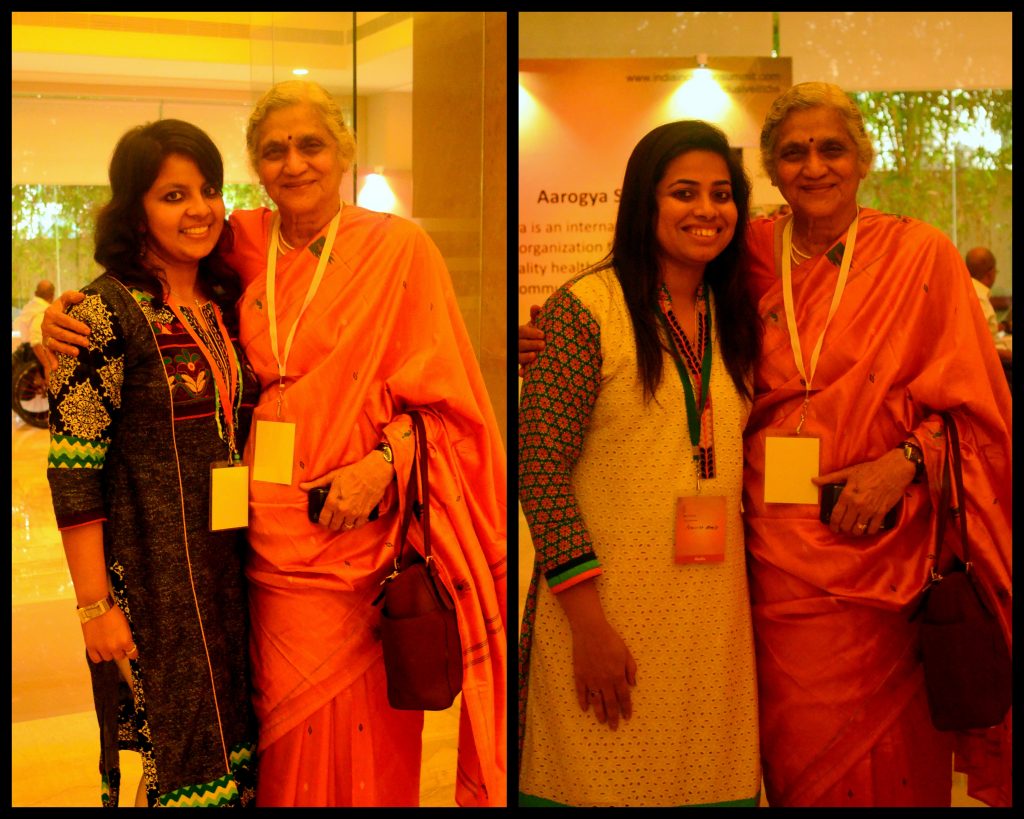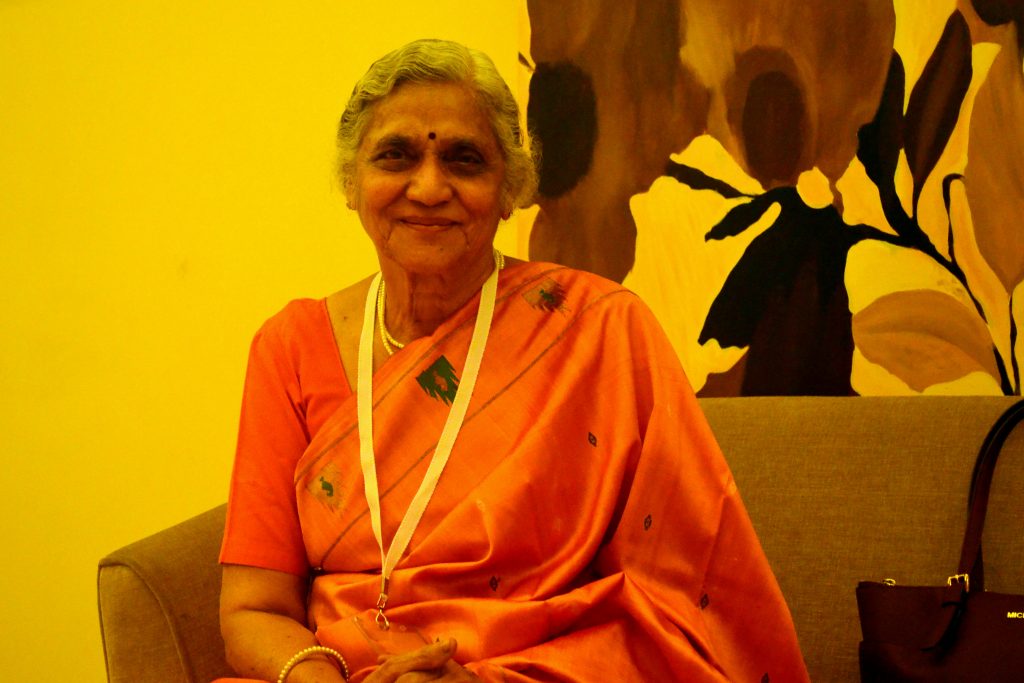India is a country where even today, most differently abled people are viewed with sympathy and offered pity. If this is the situation now, imagine how it must have been a couple of decades back! With no government acts to support people with disability, a lone woman faced the odds, and made it her life’s mission to provide hope and encouragement to those who were only given sympathy and pity. This brave woman started off on this journey in the year 1981, when she started Amar Jyoti Charitable Trust. What started as a one-of-a-kind initiative in India, is today a model followed by many other institutions. This lady has been recognized time and again over the years for her selfless service with awards like the Nehru Smriti Award and President’s Gold Medal, Hellen Keller Award, and the Padma Shri. Introducing to you all, the gem of a person, who never stops smiling – Uma Tuli.
First Step Into Social Work
I got into social work after my brother lost his limb in the Indo-Pak war. Everywhere he went, he was told, ‘Oh! Your amputation is on the hip; had it been below the knee you could have made it!’. There were so many youngsters from Indo-Pak war who were going through this agony of being an amputee; I was really touched by this incident. When I was 21 and my brother was 22 and a half, I decided to put my lecturer’s salary in a post office account every month and open an institute where people will not look at people with disabilities as ‘poor things’.
The Vision For The Differently Abled
Comprehensive services in one campus was my vision. I wanted to introduce a triangular, holistic approach of providing health, education and employment in one place. It is primary because if you’re making people with disabilities study at one place and sending them for therapeutic interventions at another place, most of them cannot make it because of transport, financial, and many other problems. Giving equal opportunities and encouraging full participation was my aim since the beginning.
Inducing Inclusion: The Earlier The Better
I wanted to start early for children. When they’re small, they accept each other, understand each other, and get over their complexes easily. In 1981, we started Amar Jyoti with 15 children with disabilities and 15 without disabilities under a tree. At that time, there was no law, there was no disability act, no right to education- so this was a big challenge in itself.

Being A Professional Beggar
By the grace of god, we were increasing the number of our classes and many people started helping. We were constantly raising funds from Lions, Rotarians, and some philanthropists, and also conducting various events. I tried everything to get money; I can call myself a professional beggar! In 3 years, we were able to get an allotment from the DDA at a concessional rate. But there was no money left. We had to do a lot of fundraising events every year.
Selfless Volunteers Save The Day
We used to request people to volunteer; it was more of a service than a commercial thing. We had 26 doctors who came once a week for 1 hour, and they used to find this one hour much more satisfying than their regular well-paid routines.
My family, students and colleagues have been my pillars of strength. When I started Amar Jyoti foundation, my colleagues used to teach, my senior students would conduct surveys, and my professional friends used to do free services. We had conversion of resources for free of cost, and that was my strength!
Amar Jyoti Foundation: Then And Now
Back then when I started Amar Jyoti, people thought it was a mad effort on my part, but the same people are congratulating me now for our big success. In fact, after Aamir Khan’s Satyameva Jayate, I got 523 applications requesting me to start foundations on the Amar Jyoti pattern in various places. We wrote a book on inclusion, which is like a recipe for people to act like us. They follow our book in several institutions in India and abroad, and we are very proud of that.

About Awards And Recognition
More than the Padma Shri or Helen Keller awards, I enjoy the smiles on my children’s faces. Those who first come to school morose and unhappy are transformed into those who are anxious to come to school every day. They literally pester their parents not to delay them when they’re going to school. This kind of change in them, plus the success of our alumni in their lives; from top jobs in ministry to self-employment, they have accomplished whatever they could.
Treatment Of The Differently Abled In India And Abroad
Attitudinal barrier is the biggest hindrance we face in India. Disability is not inability; we have to look into their potential. Accept them, encourage them and let them lead a life of equality and dignity in society.
The main difference in developed countries is that the component is tagged to the system. Pregnant women, temporarily disabled, disabled and senior citizens all come under the same category. Necessary facilities are available for all people. They have parking space allocated to the disabled outside the mall and other public places. The cars, for example, have self-driving system for the disabled. Those things are now creeping in here.
For example, now schools in India are okay with admitting the disabled, but there are no specialized teachers to teach them. I’d like it to go to an extent where all the existing regular educators should also be oriented in special education. I think there is still a long way to go. But we’ll reach there!
KnowYourStar.com (KYS) interviewed Uma Tuli as part of India Inclusion Summit(IIS). IIS is a platform that brings awareness and drives inclusion of specially-abled people at corporates, schools, policy makers and NGOs. Yes, KYS is official blogging partner for IIS and backs the event whole-heartedly in a thirst to see an Inclusive India.